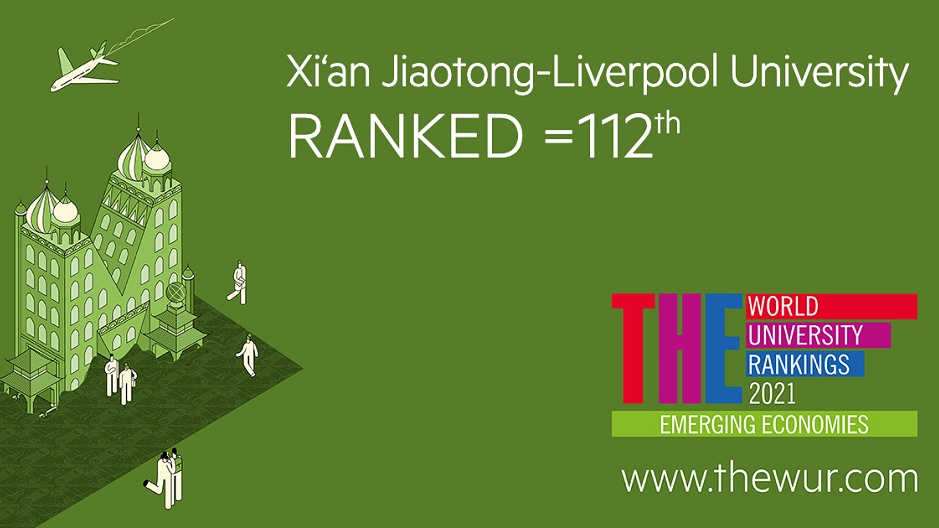05 Apr 2021

When a Chinese firm buys a foreign business, what impact does the acquisition have on employee behaviour?
A new paper published in Human Resource Management, a top journal in business management, provides new insights into cross-border acquisition, exploring how employee behaviours might affect an acquired company’s success.
According to the lead author, Dr Anna Yumiao Tian of Xi’an Jiaotong-Liverpool University’s International Business School Suzhou, the international expansion of China’s Belt and Road Initiative has seen a rise in the number of Chinese acquisitions of foreign corporations.
“Today Chinese companies are looking for further development and often fulfil their business visions through international investments,” Dr Tian says.
“This expansion through the acquisition of foreign businesses in the last two decades is reflective of the economic growth in China more broadly.”
Cross-border challenges
Despite their success in acquiring foreign firms, Dr Tian’s research illustrates the challenges Chinese companies face in managing their foreign subsidiaries.
“Chinese firms will send representatives to manage their local subsidiaries after acquisition,” Dr Tian says.
“Local employees might feel differently about new management. For example, they may worry about management style and wonder if they will still have the same working conditions when their companies are taken over by Chinese firms.”
The culture of work in the countries where the companies are acquired can further influence the situation. She points to the UK as one example, where some people might do their jobs for many years.
“Given the level of stability and regularity these workers are used to, they might have a local mindset in the workplace,” she says.
“They might not be that open or creative. Working with them can be challenging for the Chinese representatives who might want to innovate or further develop the business.”
When there is a lack of understanding or shared perspective between foreign subsidiaries and new Chinese firms, this can lead to employees displaying what Dr Tian refers to as 'withdrawal behaviours'.
“Having new management can be like a psychological interruption to some employees,” she says.
"They might not focus on work and tend to avoid attending workshops, meetings or training initiatives – this is what we describe as typical withdrawal behaviours.
“In extreme situations, it could also lead to reputation damage for the company as employees displaying withdrawal behaviours might tell prospective employees that the company has a bad management team.”
Collaboration necessary
In the work environment, sharing of knowledge and skills within an organisation is vital to business success. A willingness to collaborate can dramatically reduce withdrawal behaviours, Dr Tian says.
“When there is a high level of withdrawal behaviour, local employees are reluctant to interact with new staff from the headquarters or share their expertise and experience,” she says.
“While some knowledge can be written down and made accessible to all, knowledge built through communication and interaction, through one’s experience and creativity, cannot.
“This type of knowledge – what’s called tacit knowledge – cannot be easily transferred to other members in the organisation without open collaboration.
“In an acquired case, it is better for all parties to be open with each other to achieve a ‘win-win’ situation. If they are not willing to collaborate, nothing will work out smoothly.
Despite these challenges, Dr Tian says overall Chinese companies are proving to manage their foreign subsidiaries well by addressing concerns from their newly acquired employees with a focus on open conversations.
“Local employees might have concerns of being laid off or losing their working benefits,” she says.
“But it turns out that, in reality, these fears have been unfounded. Chinese companies have done a good job ensuring the subsidiaries run properly.
“Acquisitions are mostly successful when the Chinese firm and its newly acquired business work together to agree on a shared strategic position.
“Ideally the new management team should invest in initiatives that help local employees understand any changes and ensure all parties are on the same page.”
Bridging the East and West
This research was a result of collaborations between Chinese and British academics working together to explore the real-world business events of Sino-UK mergers and acquisitions practices.
“It’s a great collaboration between XJTLU and Leeds University. We are presenting wisdom from both East and West to inform practices that we all can engage with,” says Dr Mohammad Ahammad, Associate Professor of International Business at Leeds University and a co-author of the paper.
According to Professor Jorg Bley, Dean of IBSS, researchers in IBSS are encouraged to collaborate with academics with diverse cultural and research backgrounds.
“Eastern and Western approaches are already so deeply integrated in academic research and practice today,” he says.
“We encourage all our IBSS staff members to actively engage with scholars from all over the world and explore the most advanced research frontiers.
We have seen wonderful results such as this article from Dr Tian to bridge the West and the East.”
The paper can be read online here.

Dr Anna Yumiao Tian is an Associate Professor in the International Business School Suzhou at Xi’an Jiaotong-Liverpool University. Prior to joining XJTLU, she worked in a UK university. She obtained her PhD in the UK with a full scholarship and her PhD work was awarded a Doctoral Fellowship by the Northern Leadership Academy with less than 30 successful candidates across UK. Dr Tian has successful track-record of research and work experience with both the British government and UK-based organisations, assisting local Small and Medium Enterprises to explore and maintain business in Europe and Asia. Her consultancy work has guided major Chinese companies to successfully develop subsidiaries in oversea markets.
By Ke Tang
05 Apr 2021
RELATED NEWS

XJTLU earns Times Higher Education Emerging Economies Rank
Times Higher Education (THE) announced 9 March that Xi’an Jiaotong-Liverpool University has been ranked 112th in THE’s Emerging Economies Rankings 2021. This...
Learn more

Climathon: Students find carbon footprint-reducing solutions
At Climathon Suzhou, which took place last month, students and academics from multiple Xi’an Jiaotong-Liverpool University departments joined forces to find ...
Learn more








